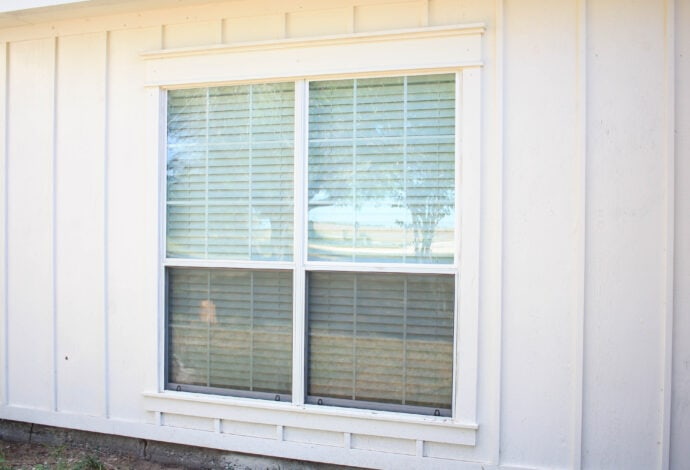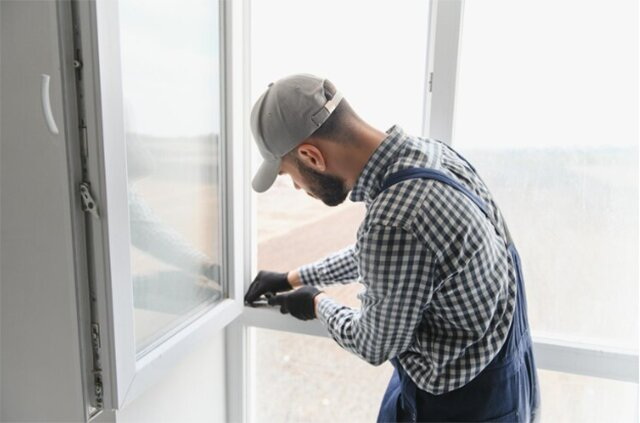English


Views: 222 Author: Dream Publish Time: 2025-01-27 Origin: Site











Content Menu
● Overview of Aluminum and Vinyl Windows
● Advantages of Aluminum Windows
● Disadvantages of Aluminum Windows
● Disadvantages of Vinyl Windows
● FAQs About Aluminum vs Vinyl Windows
>> 1. Are vinyl windows really more energy-efficient than aluminum?
>> 2. How long do aluminum and vinyl windows last?
>> 3. Can I paint my aluminum or vinyl windows?
>> 4. Which type of window is better for coastal areas?
>> 5. Do both types of windows come with warranties?
When it comes to choosing windows for your home, the decision often boils down to two popular materials: aluminum and vinyl. Each has its unique set of advantages and disadvantages, making the choice dependent on various factors such as budget, aesthetics, energy efficiency, and maintenance requirements. This article will delve into the key differences between aluminum and vinyl windows, helping you make an informed decision for your next window replacement project.

Aluminum and vinyl windows are both widely used in residential construction, but they cater to different needs and preferences.
- Aluminum Windows: Known for their strength and durability, aluminum windows are often chosen for their modern aesthetic and ability to support larger panes of glass without compromising structural integrity.
- Vinyl Windows: Made from polyvinyl chloride (PVC), vinyl windows are celebrated for their energy efficiency, low maintenance, and affordability. They come in various colors and styles, making them a versatile choice for many homeowners.
Cost is often a significant factor in the decision-making process.
- Aluminum Windows: Generally more expensive upfront than vinyl windows. The average cost for aluminum windows ranges from $100 to $300 per window, depending on size and style.
- Vinyl Windows: Typically more affordable, with prices ranging from $50 to $150 per window. This lower initial cost makes vinyl windows a popular choice among budget-conscious homeowners.
Energy efficiency is a crucial consideration for many homeowners looking to reduce heating and cooling costs.
- Aluminum Windows: While durable, aluminum is a metal that conducts heat effectively, which can lead to higher energy bills in extreme climates unless thermal breaks are included in the design. Thermal breaks can help improve insulation but may still not match the performance of vinyl.
- Vinyl Windows: Known for their superior insulation properties, vinyl windows significantly reduce heat transfer, making them more energy-efficient than aluminum counterparts. They typically have R-values between 4 and 6 compared to aluminum's lower R-values of 0.5 to 1.5.
Both materials offer durability but require different levels of maintenance.
- Aluminum Windows: Highly durable and resistant to warping or rotting. However, they can be prone to scratching and denting, which may require repainting or refinishing over time. Regular cleaning is necessary to prevent corrosion, especially in coastal areas.
- Vinyl Windows: Virtually maintenance-free; they do not require painting or staining. Vinyl windows are resistant to fading, chipping, or cracking but can warp under extreme heat if not properly reinforced.
The visual appeal of your windows can significantly impact your home's overall look.
- Aluminum Windows: Offer a sleek, modern appearance with thinner frames that maximize glass area. They can be finished in various colors but are less customizable than vinyl options.
- Vinyl Windows: Available in numerous styles and colors, including options that mimic wood grain finishes. This versatility allows homeowners to choose designs that complement their home's architecture better than aluminum might.
Installation processes can vary between the two types of windows.
- Aluminum Windows: Generally heavier than vinyl windows, requiring more careful handling during installation. Their rigidity means precise measurements are crucial for proper fitting.
- Vinyl Windows: Lighter and easier to handle during installation; they can be installed quickly with less risk of damage during the process.

Considering the environmental impact of your window choice is increasingly important for many homeowners.
- Aluminum Windows: Fully recyclable without loss of material integrity; however, the production process can be energy-intensive.
- Vinyl Windows: While they are less recyclable than aluminum, advancements in manufacturing have improved their sustainability profile. However, concerns remain regarding the chemicals used in production.
Aluminum windows come with several benefits that make them appealing despite some drawbacks:
- High Durability: Aluminum is resistant to rust and corrosion due to its natural oxide layer. This makes it suitable for harsh weather conditions where other materials might fail.
- Aesthetic Flexibility: Aluminum frames can be custom-finished in various colors and styles to suit modern architectural designs while maintaining a sleek appearance that enhances curb appeal[1].
- Thermal Performance Improvements: Recent advancements have improved aluminum's insulation capabilities when combined with double-glazed glass or thermal breaks[1][24].
- Low Maintenance Requirements: Once installed, aluminum frames require minimal upkeep—typically just occasional cleaning with soap and water[1][19].
Vinyl windows also boast numerous advantages:
- Energy Efficiency: Vinyl provides superior insulation compared to aluminum due to its low thermal conductivity properties[2][7]. This helps maintain comfortable indoor temperatures year-round while reducing energy costs significantly[10].
- Affordability: Vinyl windows tend to be less expensive upfront compared to aluminum options while offering excellent long-term value through energy savings[2][29].
- Variety of Styles: Vinyl frames come in various designs that can mimic traditional wood finishes without the associated maintenance costs[2][20].
- Durability Against Elements: Vinyl is resistant to moisture damage such as rot or corrosion—common issues faced by wood or metal frames[7][29].
Despite their strengths, aluminum windows have some notable disadvantages:
- Poor Insulation: The conductive nature of aluminum means it does not insulate as well as vinyl; this can lead to higher heating and cooling costs in extreme climates[3][30].
- Corrosion Risks: In coastal areas where saltwater exposure is common, aluminum frames may corrode over time unless properly treated with protective coatings[16][21].
- Condensation Issues: Due to their high thermal conductivity, condensation can form on aluminum frames during temperature fluctuations[6][30].
While generally favorable, vinyl windows also have some drawbacks:
- Limited Customization Options: Although available in various colors and styles, some homeowners find that vinyl lacks the aesthetic flexibility offered by other materials like wood or aluminum[4][20].
- Thermal Expansion Concerns: Vinyl can expand or contract with temperature changes which may affect seals over time if not properly installed[4][27].
- Environmental Concerns: The production process for PVC involves chemicals that may raise environmental sustainability issues compared to recyclable materials like aluminum[30][31].
Choosing between aluminum and vinyl windows ultimately depends on your specific needs and preferences:
- If you prioritize *energy efficiency*, lower maintenance costs, and a wide range of design options, *vinyl windows* are likely the better choice.
- On the other hand, if you need *strength* for large openings or prefer a *modern aesthetic* with slim profiles, *aluminum* might be more suitable despite its higher cost and maintenance requirements.
In summary:
| Feature | Aluminum Windows | Vinyl Windows |
|---|---|---|
| Cost | Higher upfront cost | More affordable |
| Energy Efficiency | Lower R-value | Higher R-value |
| Durability | Strong but prone to dents | Resistant but may warp |
| Maintenance | Requires regular upkeep | Virtually maintenance-free |
| Aesthetic Appeal | Modern look | Versatile styles |
| Installation | Heavier; requires precision | Lighter; easier installation |
| Environmental Impact | Fully recyclable | Less recyclable |

Yes, vinyl windows generally offer better insulation properties due to their material composition compared to aluminum frames which conduct heat more readily.
Aluminum windows typically last around 20–25 years with proper maintenance while vinyl windows can last up to 30–40 years due to their resistance to weathering.
Yes, aluminum can be painted or refinished; however, this is not necessary for vinyl as it comes pre-colored and does not require painting.
Aluminum may be more susceptible to corrosion due to salt exposure; therefore, high-quality anodized or powder-coated finishes are recommended for coastal regions while vinyl offers better resistance against moisture without corroding.
Yes, most manufacturers offer warranties on both aluminum and vinyl windows; however, it's essential to check specific terms as they can vary widely by brand and product line.
[1] https://magicglass.com.au/blogs/glass-blog-glazing-glass-projects-rope-access-news/top-6-benefits-of-aluminium-windows-and-doors
[2] https://www.vinyl-pro.ca/resources/why-vinyl/
[3] https://www.americanwindowproducts.com/the-pros-and-cons-of-aluminum-windows/
[4] https://energywindowsllc.com/what-is-the-disadvantage-of-upvc/
[5] https://www.ecolinewindows.ca/aluminum-vs-vinyl-windows-comparison-costs-pros-and-cons/
[6] https://www.americanwindowcompany.com/the-pros-and-cons-of-aluminum-windows/
[7] https://mountainstateswindows.net/what-are-the-benefits-of-vinyl-windows/
[8] https://door-filipek.pl/en/types-of-aluminum-windows,-opening-methods,-functionality,-advantages-and-disadvantages/
[9] https://www.fixr.com/articles/vinyl-vs-aluminum-windows
[10] https://cgiwindows.com/knowledge/the-benefits-of-vinyl-windows-and-aluminum-windows/
[11] https://www.greenmatch.co.uk/windows/aluminium
[12] https://falconwindows.ca/vinyl-windows/
[13] https://paradigmwindows.com/vinyl-vs-aluminum-windows/
[14] https://www.windowresource.com/advantages-and-disadvantages-of-aluminum-windows/
[15] https://www.nachi.org/vinyl-windows.htm
[16] https://brennancorp.com/blog/reasons-why-you-don-t-want-aluminum-windows/
[17] https://magicwindow.ca/blog/vinyl-vs-aluminum-windows-advantages-and-disadvantages/
[18] https://advancedwindowsusa.com/vinyl-or-aluminum-windows-which-is-better
[19] https://www.evaframe.co.uk/news/top-10-benefits-aluminium-windows
[20] https://www.americanwindowcompany.com/pros-and-cons-of-vinyl-windows/
[21] https://www.oppoliahome.com/10-advantages-and-disadvantages-of-using-aluminium-windows-and-doors-in-construction-projects/
[22] https://miwindows.com/blog/are-vinyl-windows-good
[23] https://www.bobvila.com/articles/vinyl-vs-aluminum-windows/
[24] https://www.aiswindows.com/blog/5-advantages-of-aluminium-windows-and-doors/
[25] https://energyswingwindows.com/blog/what-are-the-pros-and-cons-of-vinyl-windows/
[26] https://colinssashwindows.co.uk/blog/ultimate-guide-to-aluminum-windows-in-2024-styles-costs-pros-cons/
[27] https://ecochoicewindows.ca/vinyl-vs-aluminum-windows/
[28] https://www.metrabuilding.com/en/blog/12-advantages-of-aluminium-windows-and-doors/
[29] https://www.mhiwindows.com/vinyl-windows-advantages-disadvantages/
[30] https://www.angi.com/articles/pros-and-cons-aluminum-vs-vinyl-windows.htm
[31] https://windowsandmore.ro/cele-mai-mari-8-avantaje-ale-ferestrelor-de-aluminiu/
[32] https://www.linkedin.com/pulse/benefits-vinyl-windows-harvey-windows-and-doors-rv0ke
[33] https://www.thisoldhouse.com/windows/aluminum-vs-vinyl-windows
[34] https://unitedhomeexperts.com/the-pros-and-cons-of-vinyl-windows/
[35] https://fintecnic.pl/en/blog/aluminium-windows-advantages-and-disadvantages/
Seven Requirements for External Doors And Windows of Passive Rooms
How Much Do You Know about The Design Standards for Aluminum Alloy Door And Window Dimensions?
Welding Vs Stainless Steel Fabrication: Understanding The Manufacturing Process Differences
Stainless Steel Fabrication Vs Powder Coated Steel: Durability And Cost Comparison
CNC Machining Vs Stainless Steel Fabrication: Pros And Cons for Industrial Use
Stainless Steel Fabrication Vs Carbon Steel Fabrication: Key Differences Explained
Stainless Steel Fabrication Vs Aluminum Fabrication: Which Is Right for Your Project?
Stainless Steel Grades 201 Vs 304: Cost Vs Performance Breakdown
316L Vs 316 Stainless Steel Grades: Which Is Better for Corrosion Resistance?
Comparing Austenitic Vs Martensitic Stainless Steel Grades: What You Need To Know?
